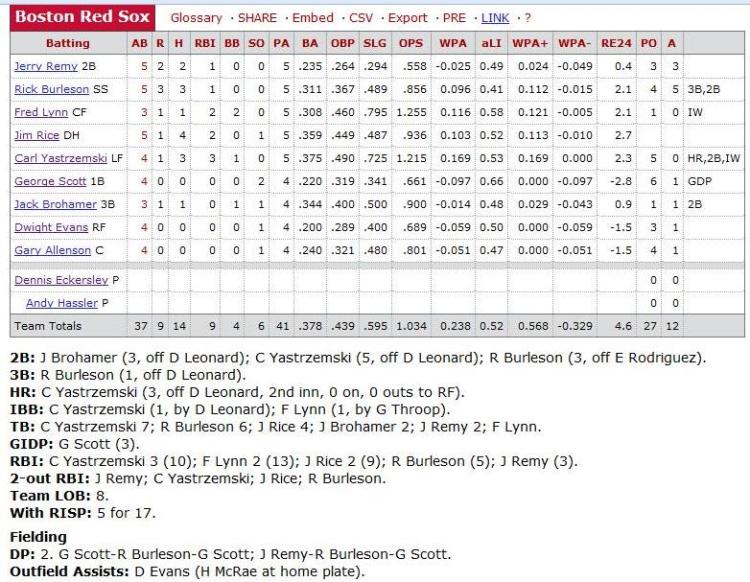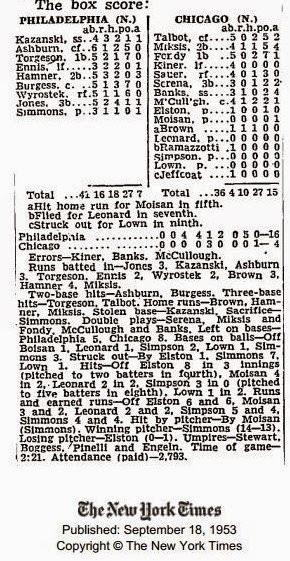A few years ago I was fiddling around on BBREF and I decided to look for the box score of the first game I ever went to. I couldn’t remember the year, either 1979 or 1980. I remembered the starting pitchers, Dennis Eckersley and Dennis Leonard I also remembered that the Sox won. I went to Eck’s page, looked at his game logs from 1979 and then from 1980. He faced Leonard twice in Boston, but the Red Sox won only one of those contests. It was April 20, 1979. BBREF let me see the box score of the first game I ever went to. Pretty amazing. And now you can see what I saw, at least part of it.
Box scores haven’t always looked like that, but basically so. Here’s an older one. I think it’s Ernie Banks’ first game.
Whatever the case, box scores are awesome! If you’re a baseball fan, you’ve spent hours of your life scouring through them. That’s why, today, we honor Henry Chadwick, the man who created the first box score with entrance into the Hall of Miller and Eric. Some know him as the “father of baseball” because of his vast contribution in promoting the game. Games weren’t on television until 1939. They weren’t on radio until 1921. There were more than 50 years of baseball history when we could rely only on newspapers. And as such, Chadwick was critical to the growth of the game. In addition to the box score, he wrote the game’s first rule book, helped to codify nine-man teams, nine-inning games, ninety feet between the bases, and catching the ball in the air. He also created the statistics for batting average and earned run average.
Chadwick also started keeping records. And the records and history of the game are more important to baseball fans than those of any other sport. If you’re a fan of the game, you probably owe a chunk of your historical knowledge to Henry Chadwick. That’s why he’s in the HoME. Find out who’s in fifth next Friday.
Miller


Discussion
No comments yet.